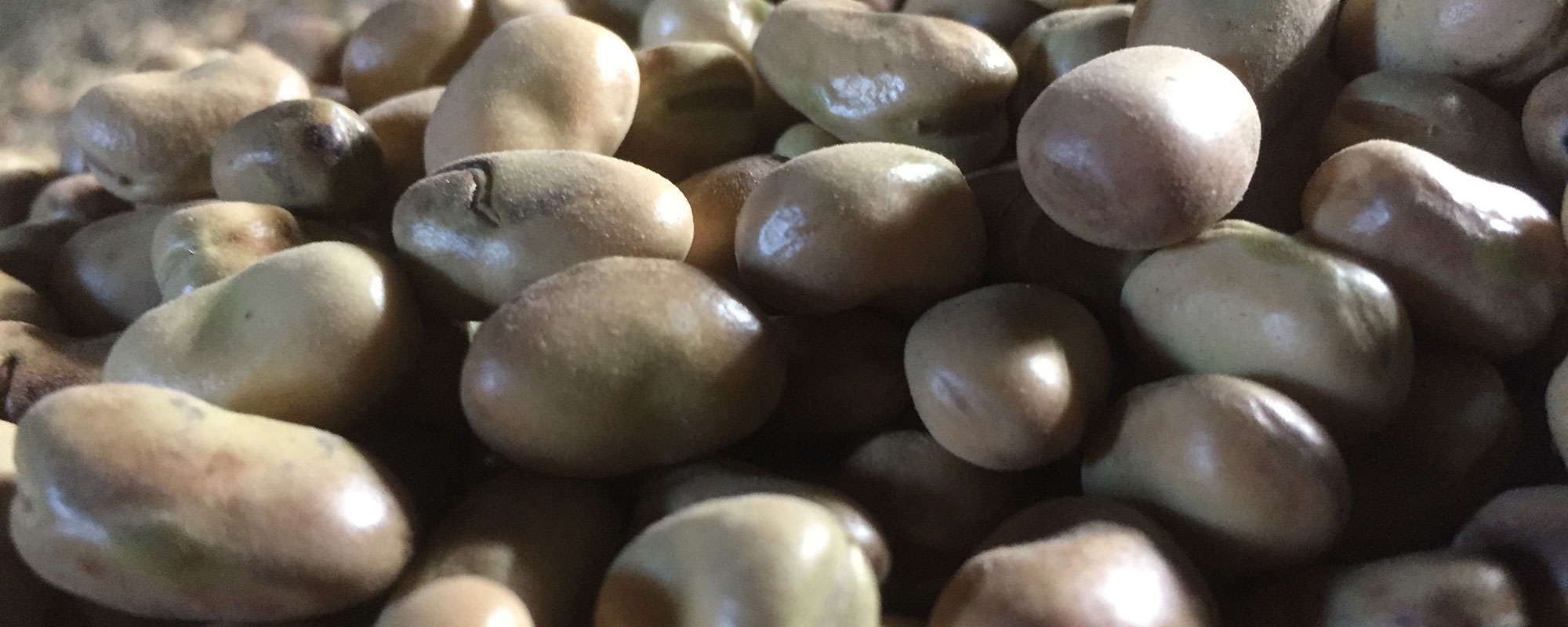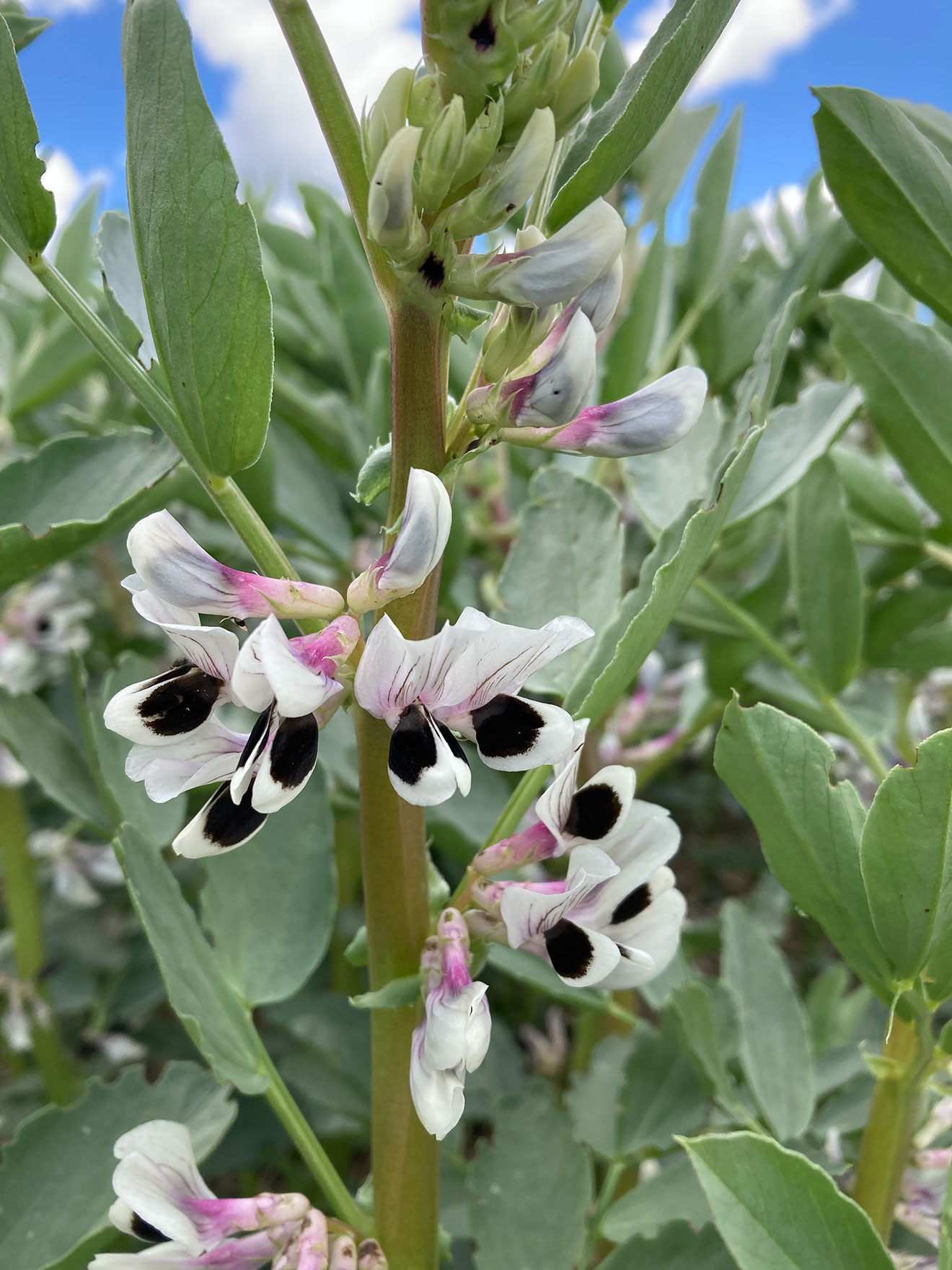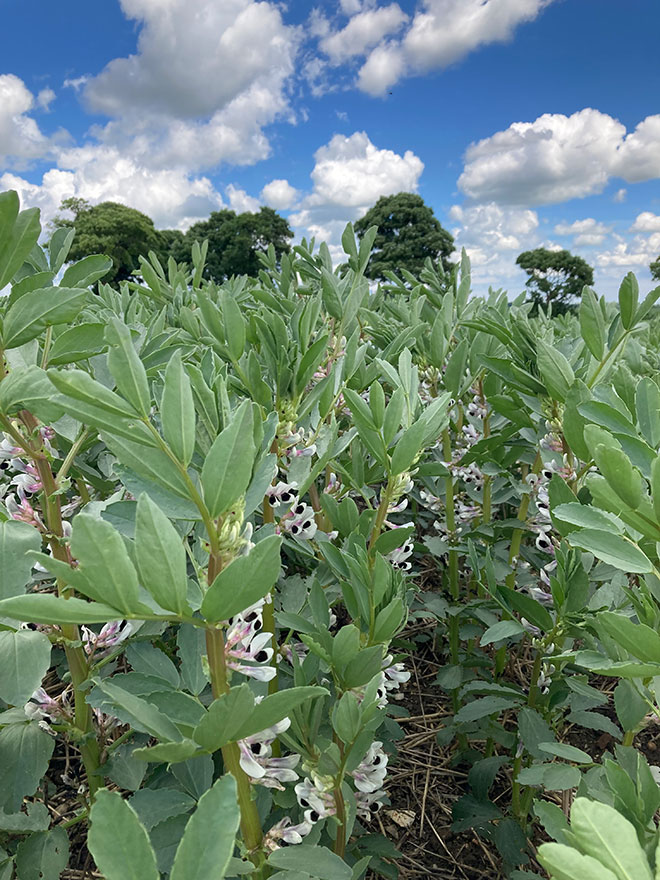
Winter beans are an excellent break crop, if you’re looking for alternative options this autumn.
It’s no secret that all pulses are hugely beneficial to crop rotations and have excellent environmental benefits both to the soil and pollinators. The most popular pulse options in the UK are winter beans, spring beans or peas. Field beans are usually the more favourable option on heavier land, and combining peas suit lighter land.
Peas bring opportunities to grow for more specific markets on contracts, but they may require more agronomic inputs than beans.
There are more niche, innovative options, such as lupins, which are being explored in the UK too.
Winter beans, typically sown late September into early October, can be a profitable crop for growers, especially if the quality for human consumption markets can be achieved. They provide a sufficient break in a cereal rotation whilst setting up conditions for the following cereal crop, either by improving soil conditions or the residual nitrogen they leave behind that is available to the next crop.
Winter beans cannot be underestimated as a source of nectar for pollinators during the spring flowering period.
Please speak to your Agrii contact if you want
further information on winter or spring pulse options.
https://www.agrii.co.uk/contact
The winter bean varieties Agrii offers for drilling this autumn are Vespa and Tundra. Tundra, although now 11 years old and lagging behind higher-yielding varieties, consistently performs on farm and is earlier to mature than other varieties. Vespa is the most widely grown variety in the market and for good reason. It is high-yielding and offers a strong agronomic package, with good disease resistance.




